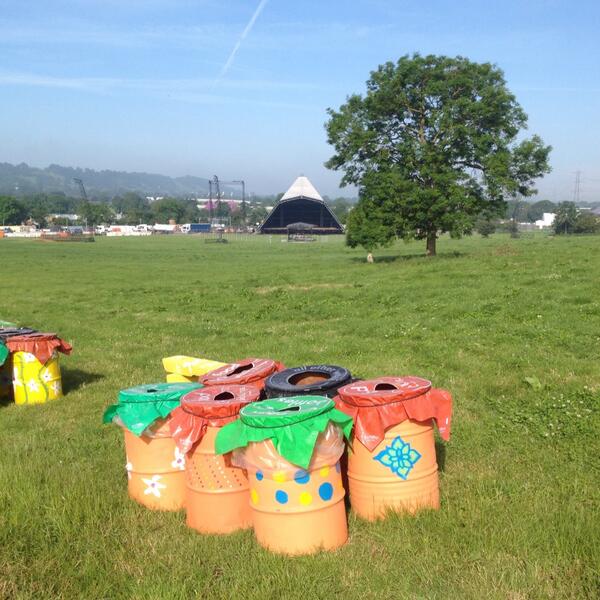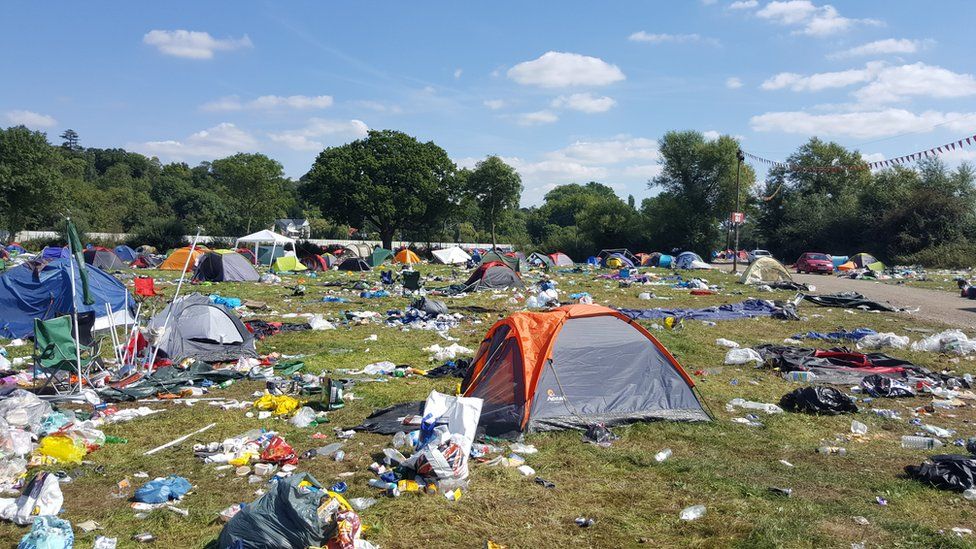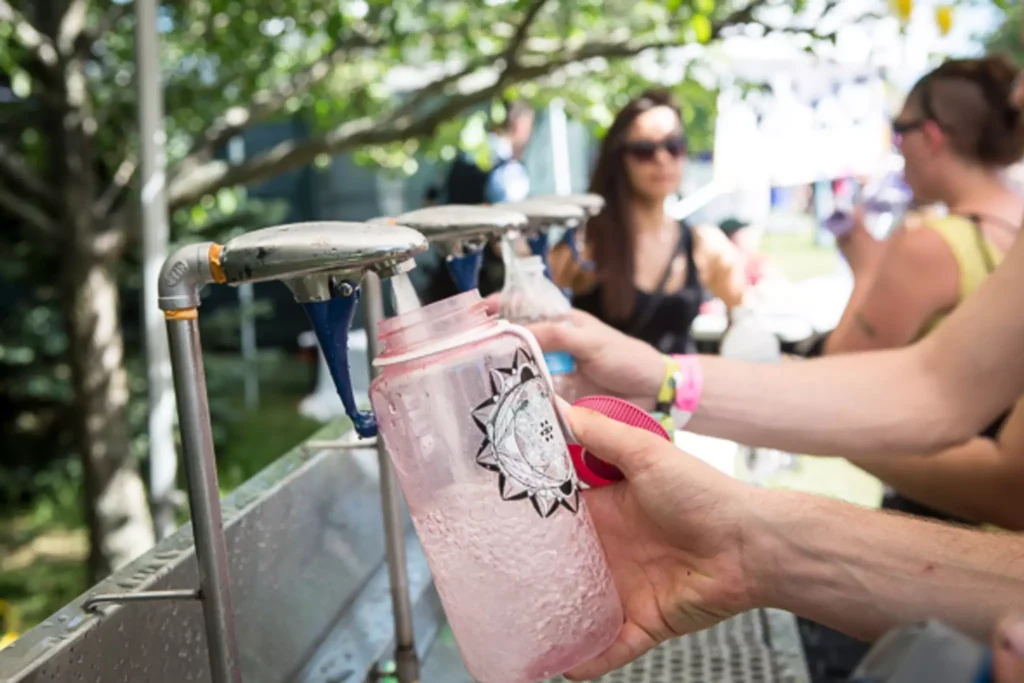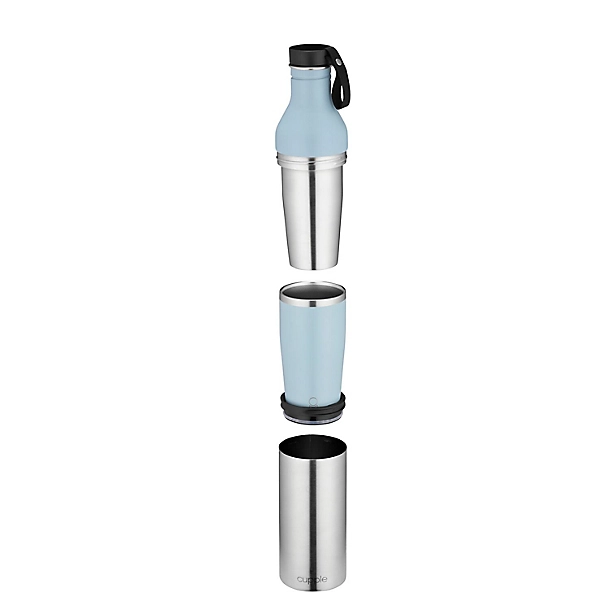Festival season is upon us… and what does that mean? A good old dose of inhaling dust, mountains of litter and leg numbing queues… the perfect concoction to mark the distinctive experience of what a British festival truly means – pure filth. Coachella could never.
With the unique and electrifying experience, also comes the sheer amounts of waste detrimental to our environment; and whilst it is the natural inclination to chuck all good habits out the window on this occasion, here is a list of ways you can remain eco conscious this festival season.
1. No Festival litter and the Earth won’t be bitter.
It is estimated by the non – profit organisation Powerful-Thinking, 3.17 million people attending UK music festivals each year create 25,800 tonnes of waste annually, three quarters of which ends up in landfill. (Thinking, 2020)
A lot of litter generated and from who? The people, the organisations. Not to pass on the blame baton because festivals are a brilliant way to bring people together and share the love for the music industry. However, when you’re enjoying your time listening to your favourite artist light up the crowd, you are hardly going to be partaking community service picking up all the plastic cups discarded on the floor.
BUT there are ways we AND the organisations can club together to turn the waste problem into a waste solution.
Recycle, recycle, recycle!
The ever-popular Glastonbury festival heralds a recycling system categorised into dry recyclables, compostable waste, and landfill waste. Instead of tossing your rubbish aside, act and utilise this recycling system by separating your waste into these different disposals. If you are one of the lucky souls to get a ticket, that is.
Donation points for your waste
Each year, the Green Man Festival in the Brecon Beacons set up camps for the charity, Help Refugees, so festival goers can donate their unwanted camping equipment and food to help the migrants in France, Calais. Tents are near impossible to recycle; they are composed of nylon, metal, and plastics. Initiatives such as these where the organisations repurpose waste into a good cause is a much better way tackle the waste problem.


2. Ditch buying new outfits, get on the second hand Festival bandwagon!
The clothes industry is the leading industry causing the most waste- it’s estimated that 92 million tonnes of textile waste is created annually by the fashion industry. (Rauturier, 2022). With this much waste and more than this the extreme difficulty of recycling clothes, second hand clothes appear to be the appropriate solution here. Buying second hand clothes encourages the desired circular economy which helps reduce carbon dioxide levels by limiting production.
Second-hand platforms such as Vinted is a platform where you can buy and sell clothes – set it to your local region to reduce transportation costs even more!
Be creative with your eco finds – Waterhaul manufactures sunglasses from recycled fishing nets, imagine that being your show and tell in the crowd.

3. Choose your Festival transport wisely
71% of transportation related carbon emissions come from road users, whereas only 1.8% of emissions stem from rail travel. (Anderson, 2023)
Most festivals are accessible by train some way or another – map out your route to limit your car pollution and jump on a train instead. If this isn’t possible, explore ways in which you CAN reduce carbon emissions, for example, if you are going with a large group – get on a bus instead of taking separate cars.
4. Don't trash your Festival tent!
Tents are the major cause of pollution at festivals – every year more than 250,000 tents are abandoned at music festivals across the UK. (2020) To add to the problem, tents are near impossible to recycle – they are made form nylon, metal and plastics; and if the bin man isn’t going to recycle your yoghurt because you left the non-recyclable lid on it, he’s not going to blink twice about disposing of a tent.
Other than initiatives previously spoken about, such as donating tents to refugees in Calais; another way companies are trying to mobilise change about this is producing compostable tents. KarTent is an Amsterdam based company manufacturing tents from cardboard. (BBC, 2019) So, before you purchase a quick and cheap option on Amazon, have a deeper dive into the environmental choices you can make – caring for the planet is a cool thing to do.

5. Let's get drastic to reduce plastic
Plastic is everywhere and anywhere – it only takes a little perusal of your surroundings to realise this. It is predicted by 2050 the oceans will contain more plastic (by weight) than fish. (Forum, 2016) If you take matters into your own hands, you can reduce plastic in every little way that matters.
Reusable water bottles – since the emergence of the Chilly’s stainless steel water bottles, the reusable water bottle have exploded on the market (in my own head, anyway). They are a great way to discourage the plastic industry manufacturing a tremendous amount of plastic water bottles and better yet, you don’t get the paranoia that you are gulping microplastics every time you drink.
Carry your cups – festivals are increasingly offering reusable cups for you to refill your drinks later – or 3 seconds if you belong to a sports association. Instead of littering your drink cups, refill! Imagine how much fewer waste festivals would generate if everyone did this.
Abandon the straws – but the lipstick smudges?!? Tiny sips ladies, you can do this – plastic straws are not worth it, they are tiny enough to be discarded by humans and interesting enough for a bird to think it is their next supper. And if you have ever watched one of those gory save the animals documentaries examining what a bird has tried to digest, you would know why that analogy comes to mind.
Wipe out the wet wipes – festivals are not the most hygienic, let’s be real. But what’s even more unhygienic for this earth is using non – biodegradable wipes to be discarded after one use. Be conscious when you choose your choice of cleaning tool – is it biodegradable, what are the materials and ingredients?
Festivals can either be perceived as a huge pest for the waste problem or it can be seen to be a great opportunity for change. Throughout this blog, we have explored avenues how festivals can maintain sustainability at festivals and more than this, finding charitable ways to deal with the waste at festivals.









